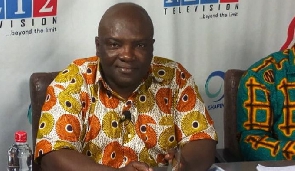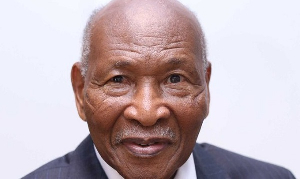Opinions of Tuesday, 4 July 2023
Columnist: Peter Dadzie
Career guidance challenges: Unlocking potential for rural youth in Ghana
Most children in the cities and developed countries have clear aspirations for their future careers. When asked what they want to become, they often mention governance roles like president or ministers, as well as executive positions in multinational companies such as Chief Executive Officer or Chief Financial Officer. Others also say they would want to become doctors, lawyers, engineers, journalists, among others.
Unfortunately, this is not the case in many rural areas of Ghana. Young people in these regions often lack knowledge about available career paths and how to achieve their goals. In a viral social media video, one pupil from a rural area when asked what she would want to do in future responded in Twi that “menua angwa moo aton” translated literally as “I will cook oil rice (braised rice) and sell”.
While there is no intention to diminish the value of such occupations, it is concerning that she chose it over other more rewarding professions.
At Akurase Mpuntuo Foundation, we encounter young people from rural Ghana seeking career mentorship who only dream of becoming teachers or nurses. For them, these professions offer job security, even if they may not find fulfillment in them. We have even witnessed a young girl turning down a prestigious scholarship for a program she was passionate about in order to pursue an education program at a teacher training college solely for job security reasons.
This situation often leads to the possibility of these young individuals becoming ineffective teachers, similar to others in the profession who chose it solely for job security. The lack of diverse role models in rural areas contributes to this trend, as young people only have exposure to teachers and nurses in their rural communities.
Furthermore, some parents with limited education in rural areas often impose career paths on their children, regardless of their strengths and interests. Interestingly, these parents also push their children towards nursing or teaching, as those are the professions they are familiar with.
Consequently, the highest aspirations for many young people in rural areas are limited to becoming teachers or nurses.
Clearly, career guidance and counseling are crucial for young people in rural areas. Nonprofit organizations like Akurase Mpuntuo Foundation are striving to mentor and guide these individuals to identify career paths that align with their strengths and interests. However, government intervention is essential to ensure the presence of professional counselors in educational institutions within rural communities, empowering young people to make informed choices about their future careers.
Finally, development partners and stakeholders committed to the empowerment of young people, particularly in rural areas, must prioritize career guidance and counseling. By doing so, we can unlock the full potential of these individuals for the sustained development of both their rural communities and the country as a whole. The success of all young people, regardless of their location, should be a matter of importance for us all.













